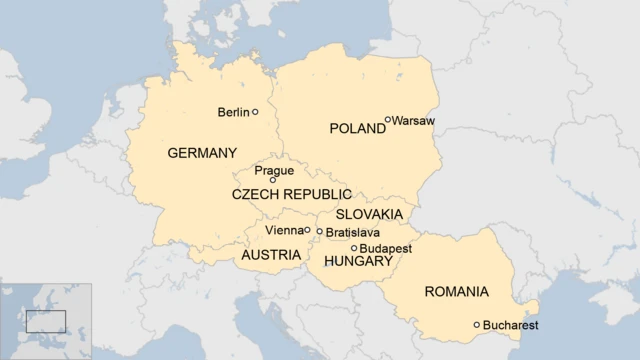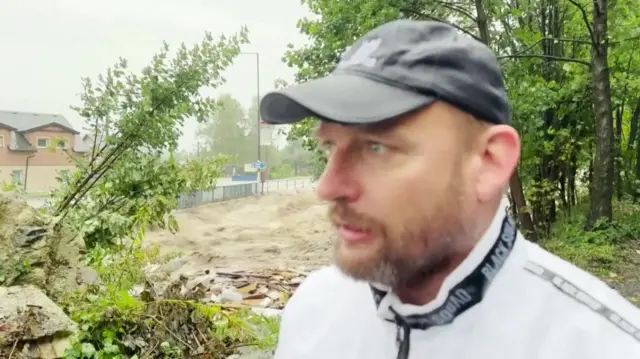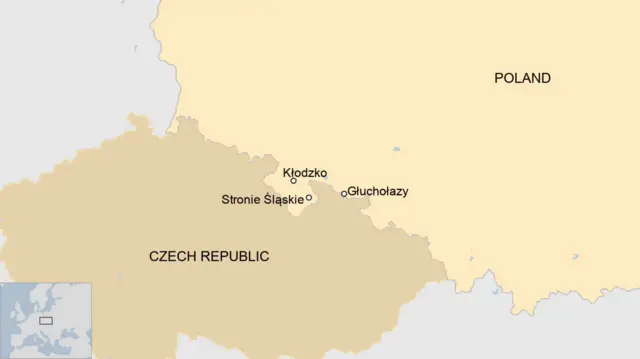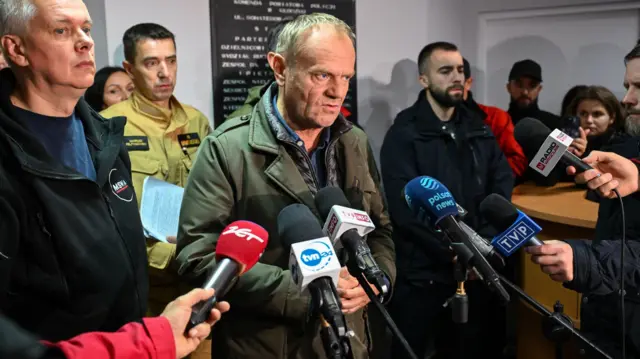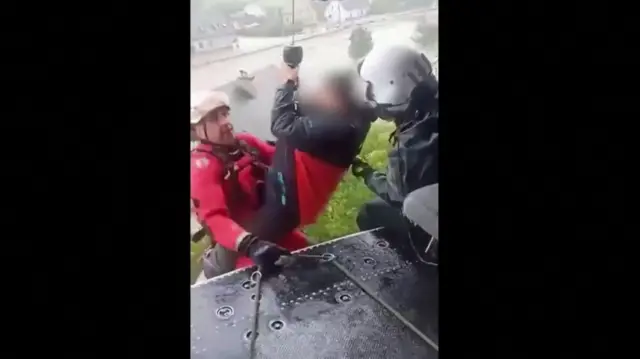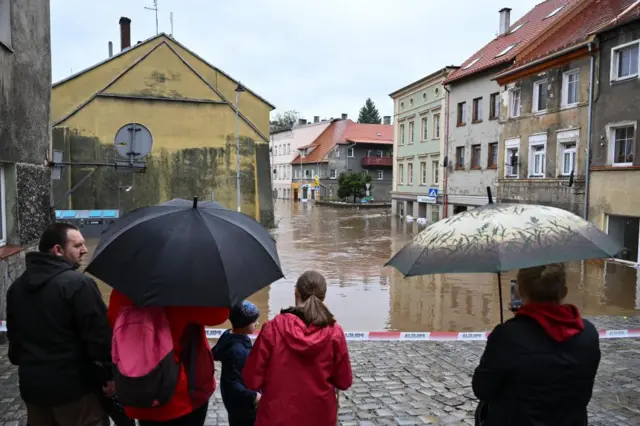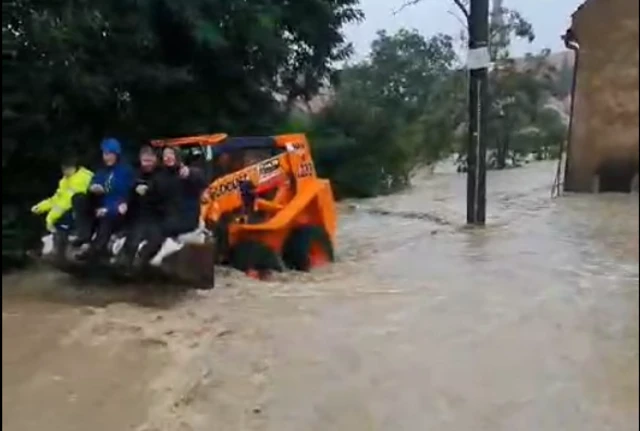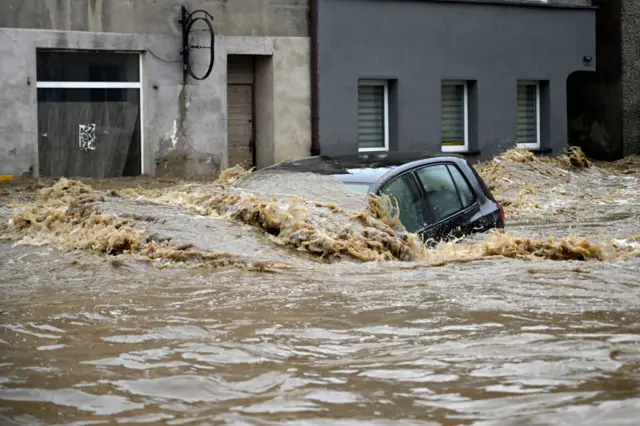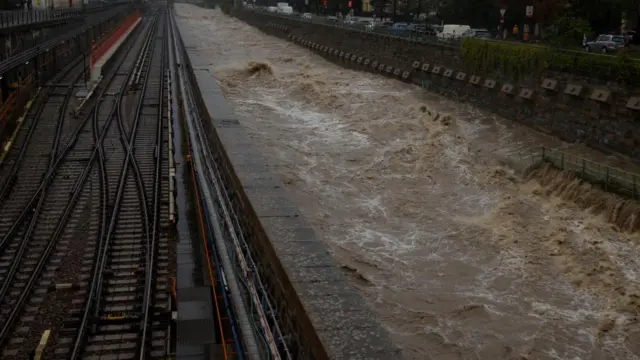Disaster response stepped up as flood threat remainspublished at 21:08 BST 15 September 2024
We are wrapping up our live coverage now but here is a summary of the main points from today.
- Several European nations are mounting large-scale emergency response operations after Storm Boris brought extreme flooding to central and eastern states
- At least seven people are known to have died so far, including a firefighter in Austria, while others are missing
- Rivers in the Czech Republic have broken their banks, houses and streets are submerged, and the power has gone out across whole regions
- A dam was breached in Poland, sending a wave of water through the south-western town of Stronie Slaski
- Poland's PM says his government will declare a state of natural disaster in order to mobilise EU resources
- Despite ongoing emergency efforts, residents and officials in already flood-hit areas bracing themselves as more rain is forecast in the coming days
Thanks for joining us. You can read read more about the floods in Europe here, as well as an an explanation of why the weather is so severe here
